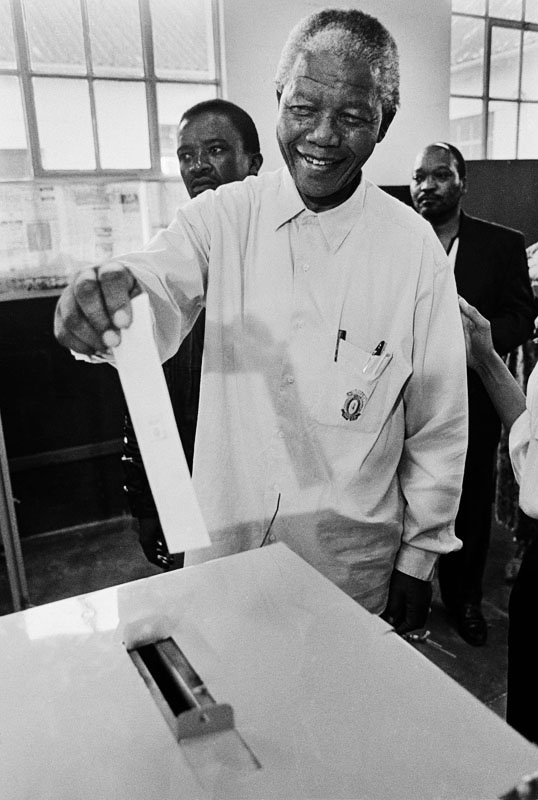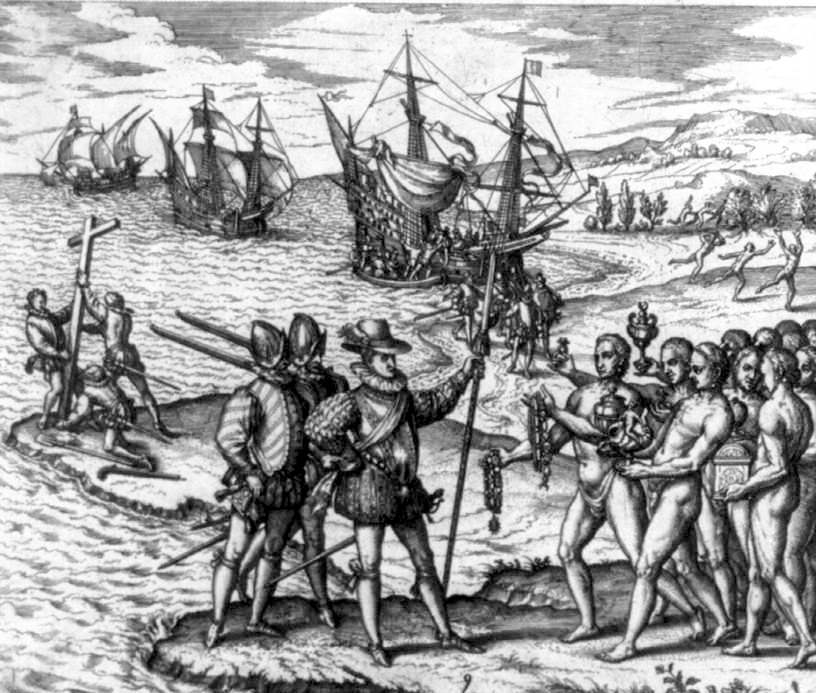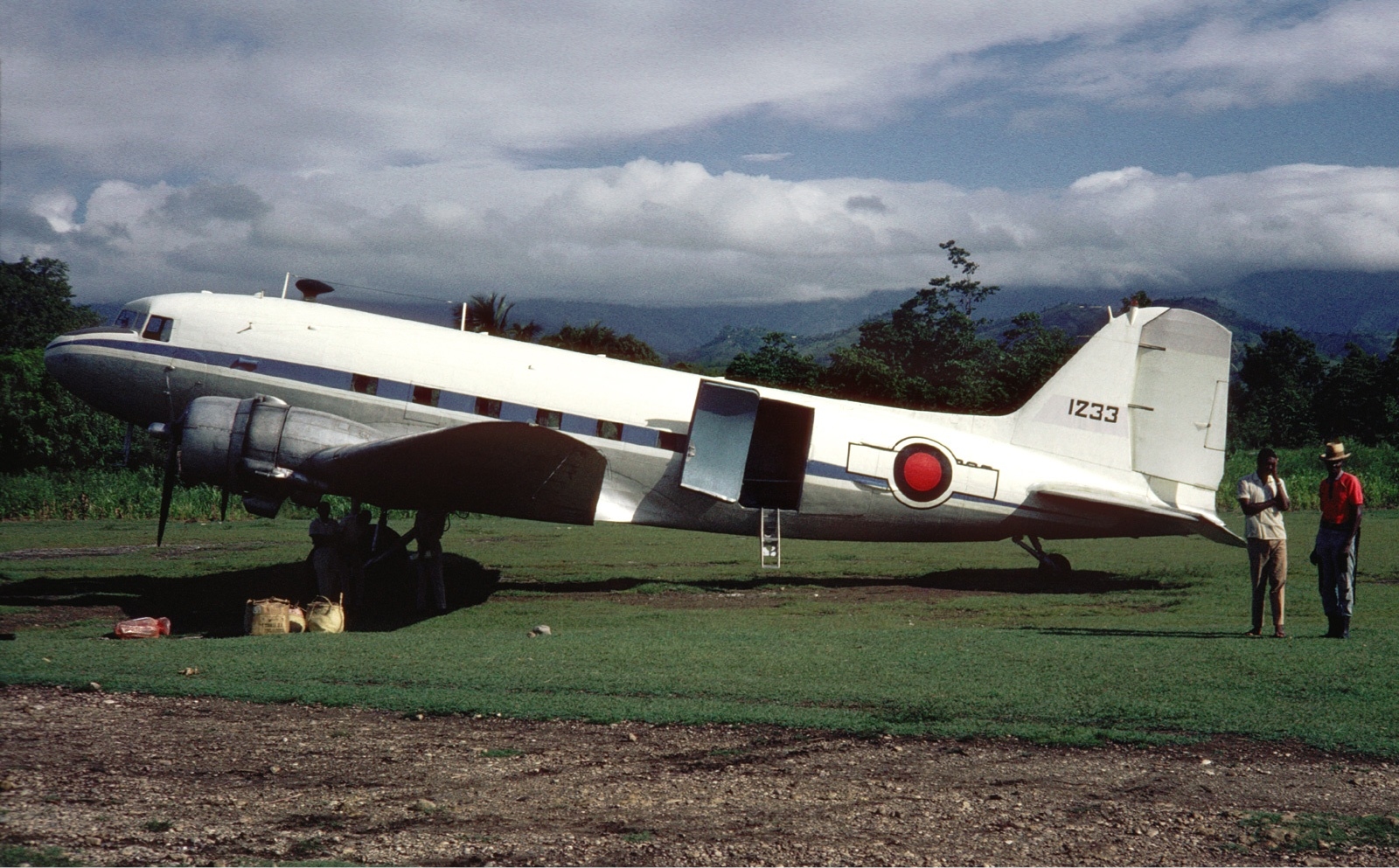|
United Nations Security Council Resolution 933
United Nations Security Council resolution 933, adopted unanimously on 30 June 1994, after recalling resolutions 841 (1993), 861 (1993), 862 (1993), 867 (1993), 873 (1993), 875 (1993), 905 (1994) and 917 (1994), the Council noted the deteriorating situation in Haiti and extended the mandate of the United Nations Mission in Haiti (UNMIH) until 31 July 1994. The council was deeply concerned that the UNMIH mission's deployment was still being obstructed and the failure of the Haitian army to carry out its responsibilities to allow it to function. It was noted that the Organization of American States had adopted a resolution requesting the mandate of UNMIH to be strengthened. It was important that the mission was deployed as soon as possible. The recent escalation of violence, violations of international humanitarian law and the appointment of the so-called ''de facto government-III'' were condemned. Concern was expressed at the deteriorating humanitarian situation in Haiti and the ... [...More Info...] [...Related Items...] OR: [Wikipedia] [Google] [Baidu] |
United Nations Security Council Resolution 841
United Nations Security Council Resolution 841, adopted unanimously on 16 June 1993, after recognising the need for an urgent settlement to the situation in Haiti and the efforts of the Secretary-General of the United Nations Boutros Boutros-Ghali and the Secretary General of the Organization of American States João Clemente Baena Soares, the Council placed various international sanctions on Haiti. Background Jean-Bertrand Aristide won 1990–1991 general election, after years of a military dictatorship. However, in 1991, Aristide was overthrown in a military coup and General Raoul Cédras was made leader. Violent resistance to the coup in the country ensued. A number of sanctions were in place against Haiti by the Organization of American States (OAS) and General Assembly, however, these were not compulsory or legally enforceable. Resolution The situation was brought to the Security Council by representations from the OAS and Permanent Representative of Haiti. The Council reg ... [...More Info...] [...Related Items...] OR: [Wikipedia] [Google] [Baidu] |
Organization Of American States
The Organization of American States (OAS; es, Organización de los Estados Americanos, pt, Organização dos Estados Americanos, french: Organisation des États américains; ''OEA'') is an international organization that was founded on 30 April 1948 for the purposes of solidarity and co-operation among its member states within the Americas. Headquartered in the United States capital, Washington, D.C., the OAS has 35 members, which are independent states in the Americas. Since the 1990s, the organization has focused on election monitoring. The head of the OAS is the Secretary General of the Organization of American States, Secretary General; the incumbent is Uruguayan Luis Almagro. History Background The notion of an international union in the New World was first put forward during the liberation of the Americas by José de San Martín and Simón Bolívar who, at the 1826 Congress of Panama (still being part of Colombia), proposed creating a league of American republics, w ... [...More Info...] [...Related Items...] OR: [Wikipedia] [Google] [Baidu] |
1994 In Haiti
File:1994 Events Collage.png, From left, clockwise: The 1994 Winter Olympics are held in Lillehammer, Norway; The Kaiser Permanente building after the 1994 Northridge earthquake; A model of the MS Estonia, which sank in the Baltic Sea; Nelson Mandela casts his vote in the 1994 South African general election, in which he was elected South Africa's first president, and which effectively brought Apartheid to an end; NAFTA, which was signed in 1992, comes into effect in Canada, the United States, and Mexico; The first passenger rail service to utilize the newly-opened Channel tunnel; The 1994 FIFA World Cup is held in the United States; Skulls from the Rwandan genocide, in which over half a million Tutsi people were massacred by Hutus., 300x300px, thumb rect 0 0 200 200 1994 Winter Olympics rect 200 0 400 200 Northridge earthquake rect 400 0 600 200 Sinking of the MS Estonia rect 0 200 300 400 Rwandan genocide rect 300 200 600 400 Nelson Mandela rect 0 400 200 600 1994 FIFA World Cup ... [...More Info...] [...Related Items...] OR: [Wikipedia] [Google] [Baidu] |
1994 United Nations Security Council Resolutions
File:1994 Events Collage.png, From left, clockwise: The 1994 Winter Olympics are held in Lillehammer, Norway; The Kaiser Permanente building after the 1994 Northridge earthquake; A model of the MS Estonia, which sank in the Baltic Sea; Nelson Mandela casts his vote in the 1994 South African general election, in which he was elected South Africa's first president, and which effectively brought Apartheid to an end; NAFTA, which was signed in 1992, comes into effect in Canada, the United States, and Mexico; The first passenger rail service to utilize the newly-opened Channel tunnel; The 1994 FIFA World Cup is held in the United States; Skulls from the Rwandan genocide, in which over half a million Tutsi people were massacred by Hutus., 300x300px, thumb rect 0 0 200 200 1994 Winter Olympics rect 200 0 400 200 Northridge earthquake rect 400 0 600 200 Sinking of the MS Estonia rect 0 200 300 400 Rwandan genocide rect 300 200 600 400 Nelson Mandela rect 0 400 200 600 1994 FIFA W ... [...More Info...] [...Related Items...] OR: [Wikipedia] [Google] [Baidu] |
List Of United Nations Security Council Resolutions 901 To 1000
This is a list of United Nations Security Council Resolutions 901 to 1000 adopted between 4 March 1994 and 23 June 1995. See also * Lists of United Nations Security Council resolutions * List of United Nations Security Council Resolutions 801 to 900 * List of United Nations Security Council Resolutions 1001 to 1100 This is a list of United Nations Security Council Resolutions 1001 to 1100 adopted between 30 June 1995 and 27 March 1997. See also * Lists of United Nations Security Council resolutions * List of United Nations Security Council Resolution ... {{DEFAULTSORT:List of United Nations Security Council Resolutions 901 To 1000 *0901 ... [...More Info...] [...Related Items...] OR: [Wikipedia] [Google] [Baidu] |
History Of Haiti
The recorded history of Haiti began in 1492, when the European navigator Christopher Columbus landed on a large island in the region of the western Atlantic Ocean that later came to be known as the Caribbean. The western portion of the island of Hispaniola, where Haiti is situated, was inhabited by the Taíno and Arawakan people, who called their island ''Ayiti.'' The island was promptly claimed for the Spanish Crown, where it was named ''La Isla Española'' ("the Spanish Island"), later Latinized to ''Hispaniola''. By the early 17th century, the French had built a settlement on the west of Hispaniola and called it Saint-Domingue. Prior to the Seven Years' War (1756–1763), the economy of Saint-Domingue gradually expanded, with sugar and, later, coffee becoming important export crops. After the war which had disrupted maritime commerce, the colony underwent rapid expansion. In 1767, it exported indigo, cotton and 72 million pounds of raw sugar. By the end of the century, the colo ... [...More Info...] [...Related Items...] OR: [Wikipedia] [Google] [Baidu] |
Boutros Boutros-Ghali
Boutros Boutros-Ghali (; , ar, بطرس بطرس غالي ', ; 14 November 1922 – 16 February 2016) was an Egyptian politician and diplomat who served as the sixth Secretary-General of the United Nations (UN) from 1992 to 1996. An academic who previously served as acting foreign minister and vice foreign minister of Egypt, Boutros-Ghali oversaw the UN over a period coinciding with several world crises, including the Breakup of Yugoslavia and the Rwandan genocide. He went on to serve as the first Secretary-General of La Francophonie from 1997 to 2002. Early life and education Boutros Boutros-Ghali was born in Cairo, Egypt, on 14 November 1922 into a Coptic Orthodox Christian family. His father Yusuf Butros Ghali was the son of Boutros Ghali ''Bey'' then ''Pasha'' (also his namesake), who was Prime Minister of Egypt from 1908 until he was assassinated in 1910. His mother, Safela Mikhail Sharubim, was daughter of Mikhail Sharubim (1861–1920), a prominent public servant a ... [...More Info...] [...Related Items...] OR: [Wikipedia] [Google] [Baidu] |
International Community
The international community is an imprecise phrase used in geopolitics and international relations to refer to a broad group of people and governments of the world. As a rhetorical term Aside from its use as a general descriptor, the term is typically used to imply the existence of a common point of view towards such matters as specific issues of human rights. It is sometimes used in calling for action to be taken against an enemy, e.g., action against perceived political repression in a target country. The term is also commonly used to imply legitimacy and consensus for a point of view on a disputed issue, e.g., to enhance the credibility of a majority vote in the United Nations General Assembly. Criticism Several prominent legal figures and authors have argued that the term is more often used to describe a small minority of states, and not literally all nations or states in the world. According to International Criminal Court jurist Victor P. Tsilonis, it refers to "the in ... [...More Info...] [...Related Items...] OR: [Wikipedia] [Google] [Baidu] |
International Humanitarian Law
International humanitarian law (IHL), also referred to as the laws of armed conflict, is the law that regulates the conduct of war (''jus in bello''). It is a branch of international law that seeks to limit the effects of armed conflict by protecting persons who are not participating in hostilities and by restricting and regulating the means and methods of warfare available to combatants. International humanitarian law is inspired by considerations of humanity and the mitigation of human suffering. It comprises a set of rules, which is established by treaty or custom and that seeks to protect persons and property/objects that are or may be affected by armed conflict, and it limits the rights of parties to a conflict to use methods and means of warfare of their choice. Sources of international law include international agreements (the Geneva Conventions), customary international law, general principles of nations, and case law. It defines the conduct and responsibilities of bell ... [...More Info...] [...Related Items...] OR: [Wikipedia] [Google] [Baidu] |
Military Of Haiti
The Armed Forces of Haiti (french: Forces Armées d'Haïti—FAd'H), consisted of the Haitian Army, Haitian Navy (at times), the Haitian Air Force, Haitian Coast Guard, (ANI) and some police forces (Port-au-Prince Police). The Army was always the dominant service with the others serving primarily in a support role. The name of Haiti's military was changed from the Garde d'Haiti to the Forces Armées d'Haïti—FAd'H in 1958 during the rule of François Duvalier. After years of military interference in politics, including dozens of military coups, Haiti disbanded its military in 1995. On 17 November 2017, the armed forces were remobilized by President Jovenel Moise. The President suspended the previous executive orders by then President Jean-Bertrand Aristide who suspended and disbanded the armed forces on 6 December 1995. History Origins The origins of Haiti's military lie in the Haitian Revolution. A decade of warfare produced a military cadre from which Haiti's ea ... [...More Info...] [...Related Items...] OR: [Wikipedia] [Google] [Baidu] |
United Nations Security Council Resolution 861
United Nations Security Council resolution 861, adopted unanimously on 27 August 1993, after recalling Resolution 841 (1993) and welcoming an agreement between the President of Haiti and the commander-in-chief of the Armed Forces of Haiti, the council, acting under Chapter VII of the United Nations Charter, suspended international sanctions against Haiti. At the same time, the sanctions would be reimposed if at any point the council is informed by the secretary-general that the parties to the agreement or any other authorities in Haiti had not complied in good faith with the agreement. All measures would be reviewed with a view to lifting them definitively when the secretary-general, having regard for the views of the Secretary General of the Organization of American States, informed the security council that all parties have fully implemented the agreement. The agreement would not be fully implemented which led the Security Council to reimpose sanctions in Resolution 875. See ... [...More Info...] [...Related Items...] OR: [Wikipedia] [Google] [Baidu] |
United Nations Mission In Haiti
The United Nations Mission in Haiti (UNMIH) was a peacekeeping operation carried out by the United Nations between September 1993 and June 1996. The Mission was reestablished (''MINUSTAH'') in April 2004, after a rebellion took over most of Haiti and President Bertrand Aristide resigned. This mandate ended in 2017, replaced by United Nations Mission for Justice Support in Haiti (MINUJUSTH), which saw the end of UN peacekeepers in Haiti after its ending in 2019. Historical background For most of the Cold War (from 1946 to 1986), Haiti was under dictatorial rule. After the February 1986 military ouster of Jean-Claude Duvalier, Haiti was ruled by a series of short-lived provisional governments (five presidents in six administrations from 1986 to 1991). The country's first democratic national election was held on 16 December 1990, and saw Jean-Bertrand Aristide elected president. Aristide assumed power on 7 February 1991, but was toppled by a military coup a few months later. Arist ... [...More Info...] [...Related Items...] OR: [Wikipedia] [Google] [Baidu] |
.jpg)




